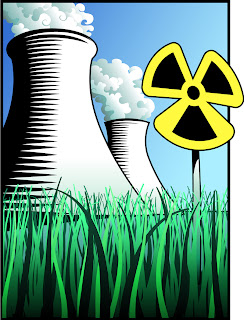Yokohama School Next to Radiation Hot Spot
B. McPherson
The news from Japan just keeps getting worse and worse. The
newspaper Japan Today is reporting
that a radiation hot spot has been found in Yokohama next to a school.
According to their report radioactive cesium has been found next to the school
at a level 12x the allowable amount. The topsoil will be removed from the hot
spot. Where it will be dumped is open to speculation.
There is no news about how long the radioactive hot spot has
been emitting its toxic energy or the effect on the school children adjacent to
it.
Yokohama is located south of Tokyo and well away from any
evacuation/exclusion zone.
The handling of the disaster at the Fukushima Daiichi
nuclear plant continues to unfold revealing incompetence and coverups. Now RT is revealing even more bad news. Over
eight tonnes of water from the plant has leaked out of its containers because
cold weather has split the pipes. The electrical company which has been
presiding over this disaster has stated that the water is not radioactive and
hasn’t leaked into the sea. That begs the question – If not the sea, did it go
into the water table?
TEPCO made statements
when this radioactive disaster unfolded last March that there wasn’t much of a
problem and that everything was under control. Since then a litany of woes have
been made public: workers dead of radiation poisoning, an ever growing
exclusion area, farmland poisoned for generations, thousands displaced,
explosions, partial meltdowns of the nuclear fuel containers, radiation spread around
the world.
“TEPCO claims that most of the leaked water is not radioactive, and has come from a dam. Though the company admitted that some of the water could be radioactive, it stressed that none of it has leaked to the sea.” RT.com
Minutes of the crucial emergency meetings when the TEPCO
executives met to discuss action have disappeared and are unavailable to the
public inquiries. TEPCO will pay damages
for this disaster, but there is a limit and the massive costs associated social
and physical damage done by the pollution from this power installation will
eventually be borne by the Japanese taxpayer.


Comments
Post a Comment